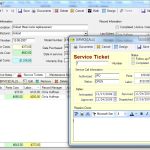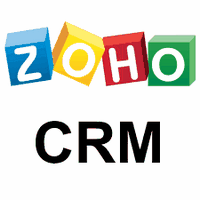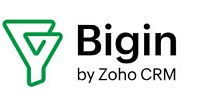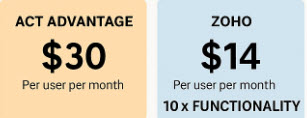 Many CRM software users get confused with the distinction between fields, records and entities. In a CRM product, a field is a single piece of information such as a zip code, e-mail address or phone number. A record is all the associated fields for a single entity. An entity is a set of records. For example, you might have a Contact Table that allows you to add multiple contacts to your CRM, an Account Table that allows you to keep track of all the companies you deal with and a Notes Table allowing you to add multiple notes to a single contact or account record.
Many CRM software users get confused with the distinction between fields, records and entities. In a CRM product, a field is a single piece of information such as a zip code, e-mail address or phone number. A record is all the associated fields for a single entity. An entity is a set of records. For example, you might have a Contact Table that allows you to add multiple contacts to your CRM, an Account Table that allows you to keep track of all the companies you deal with and a Notes Table allowing you to add multiple notes to a single contact or account record.
Many new CRM users love the fact that products like Act and Zoho are so easy to customize to make it an exact fit for their company. For example, they might add a set of fields for the shipping address or for a contact’s territory. These are examples of what I call finite fields; a contact would only have a single shipping address or territory.
Some Act or Zoho users get into trouble when they start creating what I call an infinite loop of fields. For example, a financial planner may need to log multiple investment and bank accounts; some of their clients may have multiple policies and others may have none. Or a manufacturer may have sold a customer multiple products and needs to track part, service and warranty information for each product. The problem is that you don’t know if you should create 5, 10 or 15 fields for the various accounts or products. The problem gets further compounded when you need to search for a specific piece of information; you might have to query across 5, 10 or 15 fields!
By creating a custom CRM entity you are able to create a “one to many” relationship between your CRM Contacts or Accounts and other repeating transactions including customer service incidents, ticket sales, donations, real estate transactions, project management or attended events. The possibilities are endless.
Although the principle is the same, Act CRM and Zoho CRM work with entities slightly differently. Act refers to custom entities as “Act Custom Tables” and charges an additional $120/user/year in order to add them to an Act CRM database. They also include several “sample” tables for various industries that you can use and modify for your specific purpose. In Zoho CRM custom entities are known as “Zoho Custom Modules” and are included with all Zoho CRM versions except for the free one. Although Zoho doesn’t include any “sample” modules, Zoho One includes Zoho Desk and Zoho Projects at no extra charge which are fully built modules for ticket and project management.
If you’re interested in expanding your Act! or Zoho CRM to include a custom entity, or want to discuss the best CRM implementation for your business please give us a call or drop us an e-mail. The Act! Consultants & Zoho Consultants at Tech Benders are here to help you with your CRM questions!




Do you have Real Estate versions of ACT already built out (with custom tables to track residential properties) or do you have to customize from scratch once we buy v24 licenses?
Hi Brad,
Thanks for stopping by Tech Benders! Yes, there is a customized tables layout for Real Estate that comes with the Act! Tables product. You would have to purchase either Act! Premium for Desktop or Act! Premium for Cloud and add on the tables. You can then build them from scratch, or use the Real Estate one which can in turn be modified if necessary.